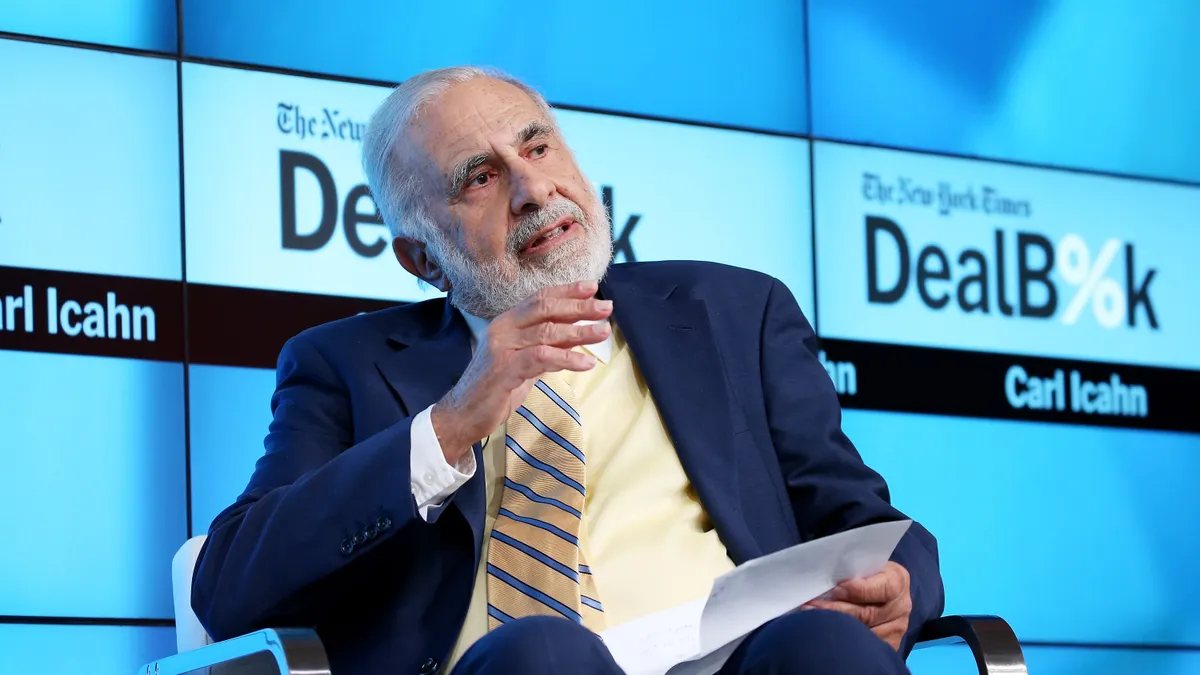Dive Brief:
- DNA-sequencing company Illumina on Thursday filed a preliminary proxy statement with the U.S. Securities and Exchange Commission, urging shareholders to vote for its director nominees at the firm’s annual meeting and to withhold votes for three candidates nominated by activist investor Carl Icahn.
- Icahn earlier this month launched a proxy battle aimed at forcing Illumina to divest Grail, the liquid biopsy maker that it bought in 2021 over the objections of antitrust regulators in the U.S. and Europe.
- Illumina’s recommendations come a day after Icahn told the Wall Street Journal in an interview that Illumina should replace CEO Francis deSouza with former CEO Jay Flatley.
Dive Insight:
When he launched his activist campaign to seat three associates on the Illumina board, Icahn told fellow shareholders in a public letter that the company’s “reckless” decision to close the deal for Grail without regulatory approval had cost shareholders $50 billion. His board nominees, he said, would work to end the costly standoff with regulators.
Illumina, in a statement on Thursday, countered that Icahn's involvement threatens the long-term success of the company and reiterated its view that the financier’s director nominees bring no relevant skills to the board.
“It has become abundantly clear that neither Mr. Icahn, nor his three nominees – Jesse Lynn, Andrew Teno or Vincent Intrieri – understand Illumina's business or Grail and the associated regulatory processes,” the company said.
Canaccord Genuity analyst Kyle Mikson said on Thursday that while a divestiture of Illumina appears inevitable, changing Illumina’s board of directors may not accelerate that process and could damage the long-term progress of Illumina's core business.
“Based on our conversations with Mr. Icahn's board nominees, it is obvious that they are not experts on Illumina's business and industry. However, we note it is possible that at least one of the three nominees could be a helpful addition to Illumina's board,” Mikson said in a research note.
Antitrust regulators objected to Illumina’s purchase of Grail on grounds it could stifle competition in the emerging market for blood-based early-cancer tests because Illumina supplies a technology used to develop and process those tests.
Illumina has argued that it has the resources to drive reimbursement and broader adoption for Grail’s multi-cancer test, called Galleri.








